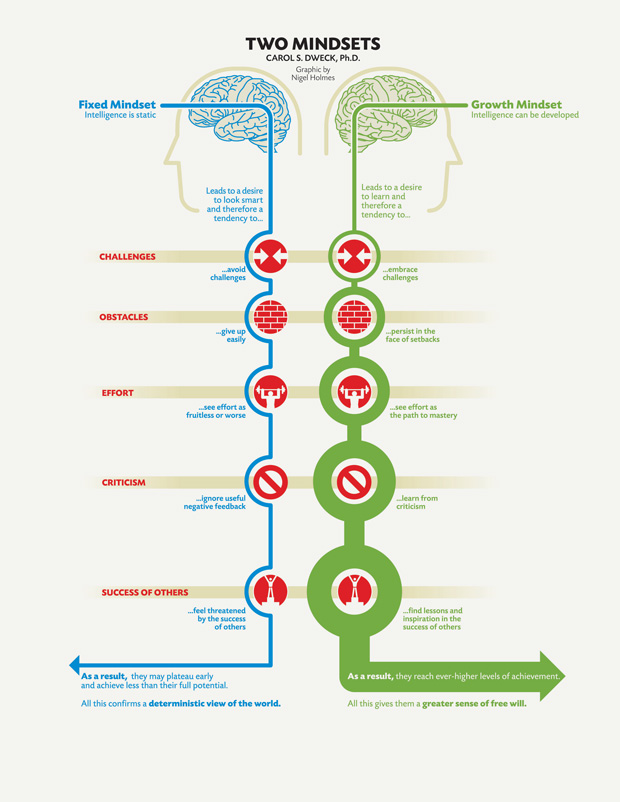Mindset
Changing the way you think to fulfil your potential


Carol S. Dweck, Ph.D., is one of the world’s leading researchers in the field of motivation and is the Lewis and Virginia Eaton Professor of Psychology at Stanford University. Her research has focused on why people succeed and how to foster success. She has held professorships at Columbia and Harvard Universities, has lectured all over the world, and has been elected to the American Academy of Arts and Sciences.
Carol Dweck's work on Mindsets has probably had more positive impact on people's lives than any other psychological work in the last half-century. She explains that our inate and developed skills and experiences, though important are not sufficient to make us successful – but that we also need to adopt a 'growth mindset' to enable real achievements. In an era when everyone needs to continually keep learning new skills just to stop going backwards, her insights are more important than ever.
The core concept is the simple notion of 'fixed' and 'growth' mindsets. Fixed mindsets are where people believe they have certain abilities, and need to constantly prove to themselves and others, what those abilities are. In this world when things go wrong it is an immediate setback because it means you have failed to prove you can – you are less able than you have set out to be. Failure is a detractor, a negative score. Failing means you are one step closer to being a failure. It also means you shy away from risk, as you don't want to lose. You stop challenging yourself. Fixed mindset people are always trying to vindicate themselves – they are worth their positions or status. Fixed mindsets bring constant fear of failure.
Those with a growth mindset, take a radically different approach. They are on a journey to get better. When something goes wrong, it is a learning experience, something to understand, analyse and build on. Failure thus becomes a positive, as it allows you to learn from it and improve. New challenges are exciting and fun. Importantly, growth mindsets also release you from the fear of failure, and so less anxious and therefore happier.
The parallels with innovation best practice are not hard to see. The 'fail fast, fail often' approach to iterating new products can be applied to yourself too – with a growth mindset this is not depressing but invigorating; with a fixed mindset it could be terminal. For senior leaders this is a critical appreciation, as the trap of believing that doing the same things that get you up the organization will be just fine to make you successful once at the top is a fixed mindset approach.
Mindset – covers a lot of ground and Dweck offers insights for school-children, students, sportsmen and women, business leaders, teachers and coaches. The core idea is the same though. Having curiosity and a determination to improve not only will make you better at what you do – it will also make you less judgemental of others and yourself. Or put another way, you will be nicer and happier.

Title: Mindset: Changing the way you think to fulfil your potential
Author/s Name/s: Dr Carol S Dweck
Publisher: Robinson, Little Brown
ISBN: 978 1 472 139 955
Publishing Date: Updated edition – January 2017
Number of Pages: 264
Author Knowledge Rating: 1-5 (based on their years of experience, academic expertise in subject areas, and exposure to cross-functional thinking in the area)













































































Readability: 1-5 score(1=dense and v academic; 5=frantic; page turner)















































































Appropriate Length: (1=could have been written in 25% of the length;5=could have been longer)















































































Core Idea Value: (1=nonsense (or entirely esoteric); 5=game-changer)






























































































